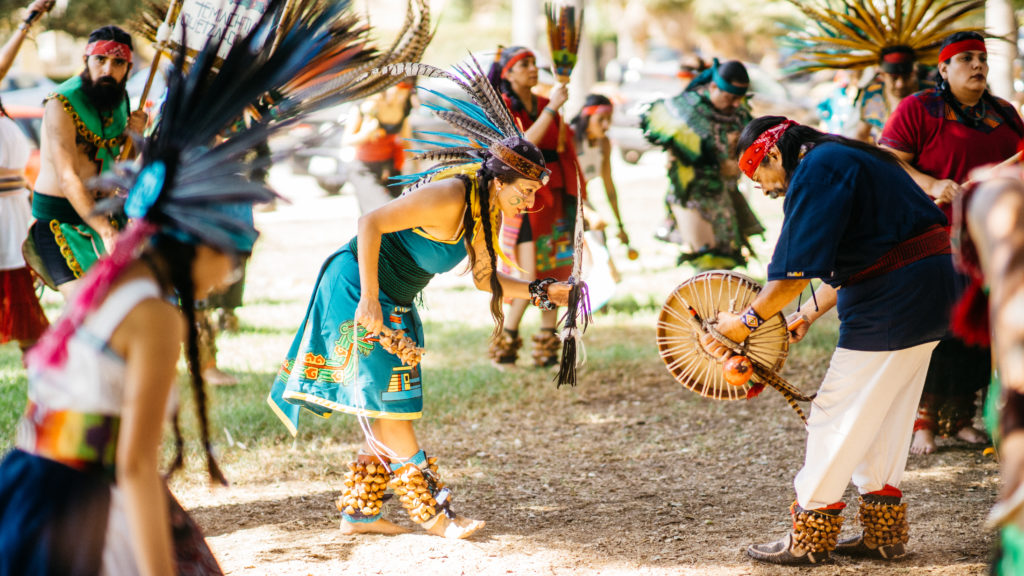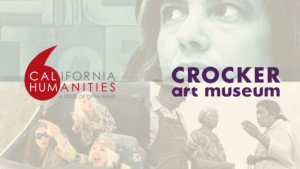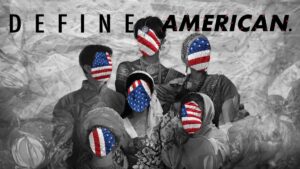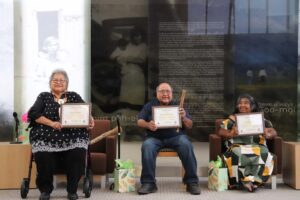The Indigenous in Us: Embracing Ancestral Knowledge & Sharing the Beauty of Practice is a community wellness project led by Tia Chucha’s Centro Cultural and Bookstore with Project Director Melissa Sanvicente. Over an eighteen-month period, this project showcases community-based indigenous healing and wellness practices of Native Mexica and local Native American groups. Their combined teachers and teachings form a human bridge connecting the Northeast San Fernando Valley to the past and present of the United States, Mexico, and Central America. The Indigenous in Us project hosts free public cultural events, including various panels, presentations, workshops, and traditional ceremonies.
In this interview, we talk with Project Director Melissa Sanvicente to learn more about this project, the programming, and its relation to the humanities.
What inspired you to develop this project?
Bringing ancestral knowledge and teachings to the forefront of the conversation for community healing and wellness has been a bedrock of Tia Chucha’s philosophy and practice since our inception. As an organization, we honor ancestral knowledge by interweaving it into many aspects of programming. This project has allowed us to highlight and scale-up our existing collaborations with grassroots culture bearer groups that invest tremendous heart into preserving indigenous teachings, rituals, and ceremonies involving the cultural art form of Mexica Danza. We acknowledge the Tataviam and honor all indigenous people whose land we stand on. At the same time, we wanted to bring forth Indigenous knowledge and teachings originating from Mexico and Central America as a form of self-care and community wellness. As the project director, I know first-hand that learning these teachings can bring healing, harmony, and balance to one’s existence.
What kinds of programming have you done so far, and what has been the response?
We have highlighted three Danza groups in the San Fernando Valley Area, including Grupo Ajolote from North Hollywood, Kalpulli Xochiyaoyotl from Sun Valley, and our resident Danza group Kalpulli Temachtia Quetzalcoatl. We have hosted a series of sets of workshops and ceremonies presented separately. Each group held a public workshop on history and teachings, followed by a related community celebration and/or ceremony. Topics have ranged from the Indigenous teachings of Day of the Dead celebration, the essence of gratitude, and acknowledging the earth’s seasonal changes from elderhood to rebirth. Participants and observers have responded with excitement and gratitude for the insights into how these teachings and practices can be incorporated into daily life to engender understanding, wellness, and balance.
How do the humanities support us, particularly during a time of crisis?
The quality of relationships is of critical importance during times of stress and sudden change. The humanities offer opportunities to learn, understand, and see each other through a lens of compassion, connection, and growth. The more deeply we understand that we are all connected — feeling that what affects others also affects us — the more we can grow together. During times of crisis, it is in reflection that we can see clearly what perhaps needs to be reimagined, adjusted, reshaped, and built on new foundations. The humanities support the many aspects that bring us together as human beings and how we walk this earth, each with our own vantage points. Our lived experiences can be what makes us different. Sharing our experiences and perspectives through the arts can be a way to discover commonalities in struggles to persevere with dignity and justice.
The Indigenous in Us: Embracing Ancestral Knowledge & Sharing the Beauty of Practice project is supported by a Humanities for All Project grant. To learn more about this project, visit tiachucha.org.





